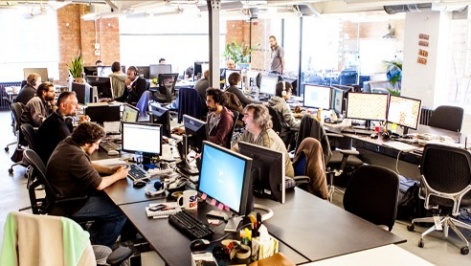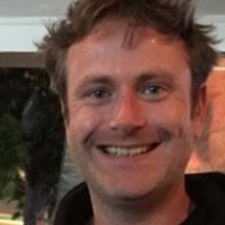The mobile games industry is certainly no exception, offering dynamic and diverse roles to thousands the world over.
As such, PocketGamer.biz has decided to celebrate this with a regular series of interviews where each week we chat to a mobile games industry professional from a different field - be it game design, art, or PR - to learn about how they bagged that job in games.
Obviously every career path is different, but the goal is to give a picture of the sorts of skills, qualifications and ambition one might need to find themselves in such a role - and how we can all learn from it.
This time, the spotlight is on Bruce Brodie, Senior Producer at Ubisoft subsidiary and Hungry Shark developer Future Games of London.
PocketGamer.biz: Tell us a little about your current role and what it entails?
I’m the Senior Producer on Hungry Shark Evolution, Hungry Shark VR and our prototyping team.
That means I oversee running a live game with Hungry Shark Evolution, as well as driving a new team creating brand new experiences on the latest technologies with VR and the prototype team - which I can’t talk about as it's top secret!
How did you first get into this job? (If senior, how did you progress into this role)?
I started 15 years ago as a Junior Designer and climbed the ladder to Lead Designer.
I realised that I needed to be in production to really put my stamp on a game.Bruce Brodie
I loved designing games and thinking up crazy ideas, but quickly realised that I needed to be in production to really be able to put my stamp on a game.
I was working on triple-A console games at the time, so I applied for a production role.
The transition was pretty brutal, to be honest, as production covers the whole game development process and suddenly you are dealing with ten times as many people, reports and meetings - and, of course, the entire project responsibility rests on your shoulders.
So it is a lot more pressure but I enjoy the challenge and I still get goosebumps when I see people enjoying the games we make.
Is it something you ever imagined yourself doing?
No - I actually wanted to be a freestyle skier and ski big mountains for a living.
A spinal injury put paid to that, so I played a lot of games as a kid - which led to my love of the medium.
What did you study (if anything) to get your role? What courses would you advise for aspiring professionals in the area?
I did all the standard GCSEs, four A-levels and then hit a brick wall - there were no IT or coding courses when I started, so I ended up doing a BSC in critical design and game theory.
That got my foot in the door for an interview and the rest is history.

These days there are entire university campuses that focus on IT and computer-based learning - we’ve come a hell of a long way in a relative short time frame!
Is there anything about the job/industry you wish you would have known when first joining?
Don’t binge eat burgers and pizza everyday for 12 weeks during crunch time. It takes years to shift that damage after you have shipped!
What other advice do you have for someone looking for a job in this profession?
Be inspired, as well as an inspiration to others.






















